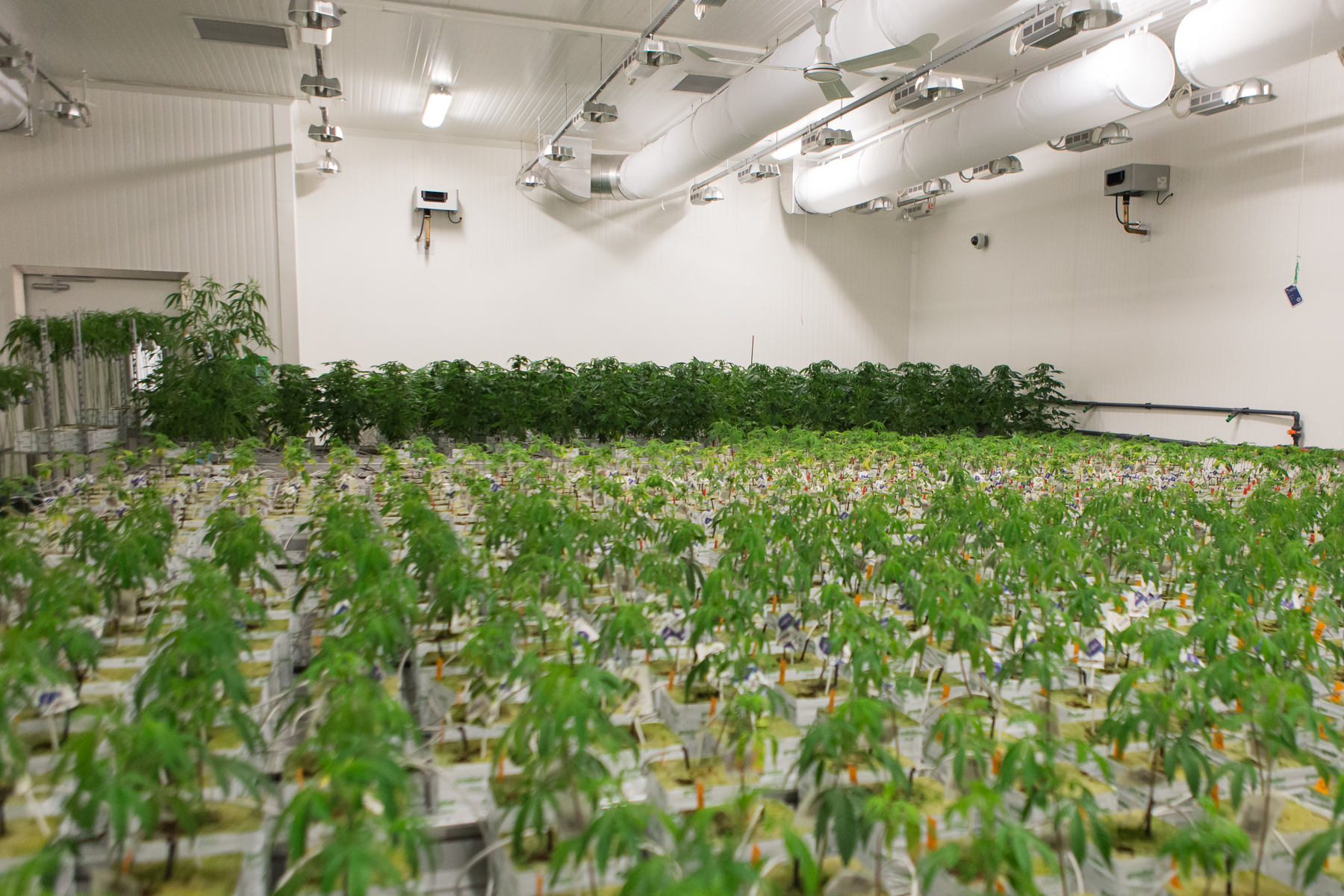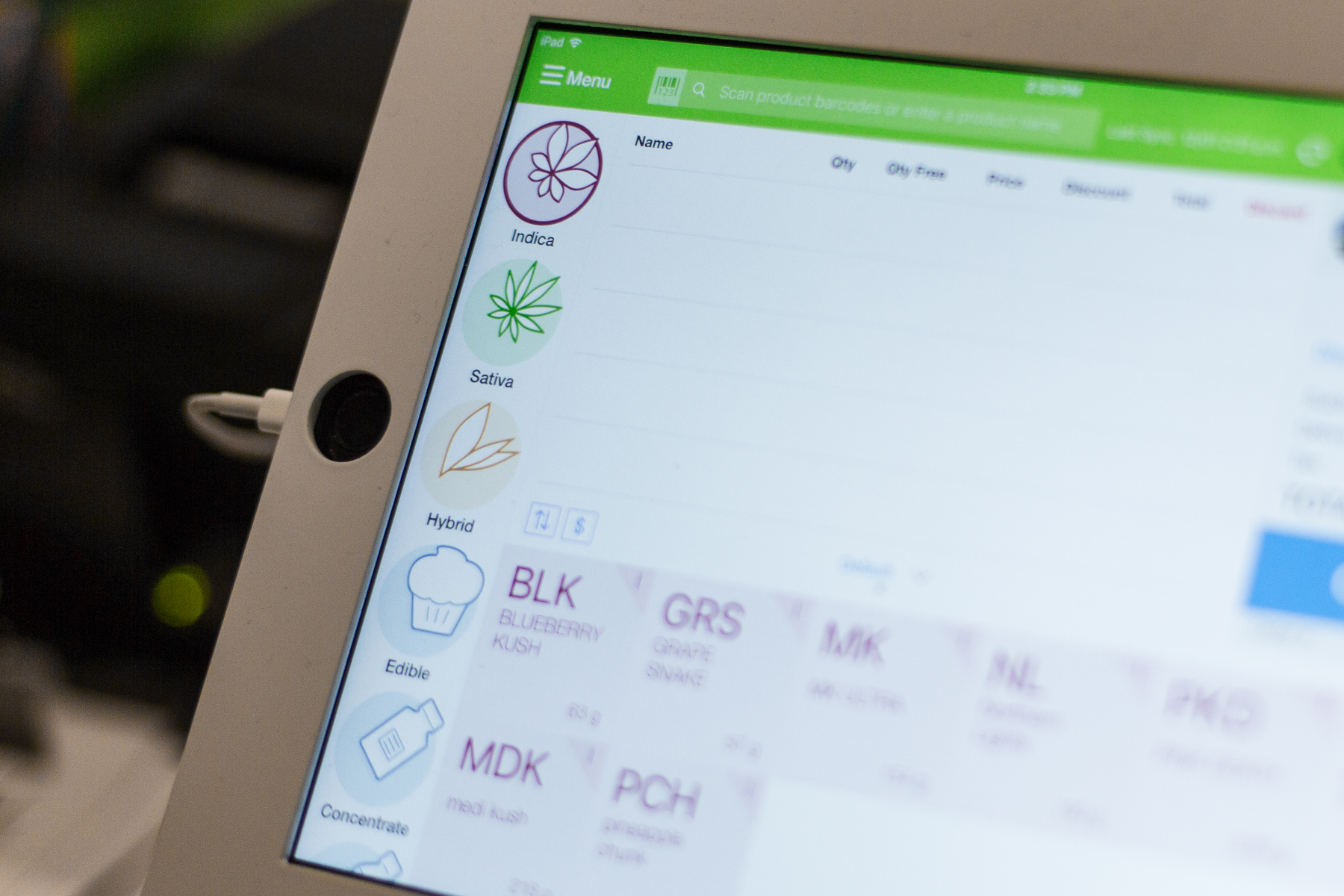With less than a year left until the government’s self-imposed deadline to legalize marijuana, efforts to figure out how legal weed will be sold in Canada are in full swing.But hearings at a Parliamentary committee in Ottawa have shown there’s still some big differences in opinion about how that should look.Premiers want more money, cops want more time, pot activists want more freedom.So here is this week’s news on pot endeavours across the country.New Brunswick’s finance minister on Friday announced the province will set up a new Crown corporation that will handle the sale of recreational cannabis. The province also inked a lucrative agreement with Organigram and Canopy Growth Corp, both licensed medical marijuana producers, to supply a minimum of five million grams per year.It’s one of the first agreements of its kind to link Canada’s medical cannabis producers with the future recreational market — and a possible signal of what’s to come for other provinces and territories. The deal has a value between $40 and $60 million per year, according to the producer’s announcement today. Finance Minister Cathy Rogers said the province will decide at a later time exactly how legal cannabis will be sold, and that it likely would be carried out by an entity separate from the Crown corporation. An interim report from New Brunswick recommended a legal age of 19 for consumption of marijuana and a limit of 30 grams for possession.“We have the opportunity not only to help build a strong and successful cannabis market within the province and beyond, but to also reinforce our company’s commitment to safety and education” Ray Gracewood, Organigram Chief Commercial Officer, said regarding today’s announcement.Monday marked the start of hearings for the House of Commons Health Committee, with MPs diving straight into the complexity and controversy of marijuana legalization. This week alone, the MPs heard from a wide range of groups on topics including tax revenue allocation, public safety and health, the black market, pricing and possession.On Tuesday, the committee heard from two voices who actually know something about legalization: Officials from Washington and Colorado, two states who have had legal marijuana since 2012.Health, police, and tax officials noted that regulated marijuana sales were only able to keep up with black market was when they lowered it to an equivalent or lesser price. After cutting their prices, they claimed 70 percent came from government-sanctioned, legal, cannabis.“We were flying the plane as we were building it, and that’s unfortunate but yes it was done on a more accelerated timeline than we would have liked,” said Michael Hartman, Executive Director of Colorado’s Department of Revenue.The committee is hearing from three witnesses on Friday morning on the impact of edibles: A professor at John Hopkins University; a marijuana specialist from the Colorado health department; and long-time pot activist Dana Larsen.“I feel it’s almost because they’re too lazy, they can’t figure out how to properly regulate these things, because they can’t figure it out they’re going to leave it for later,” Larson said of Ottawa’s decision not to address edibles, in an interview with CKNW.
Finance Minister Cathy Rogers said the province will decide at a later time exactly how legal cannabis will be sold, and that it likely would be carried out by an entity separate from the Crown corporation. An interim report from New Brunswick recommended a legal age of 19 for consumption of marijuana and a limit of 30 grams for possession.“We have the opportunity not only to help build a strong and successful cannabis market within the province and beyond, but to also reinforce our company’s commitment to safety and education” Ray Gracewood, Organigram Chief Commercial Officer, said regarding today’s announcement.Monday marked the start of hearings for the House of Commons Health Committee, with MPs diving straight into the complexity and controversy of marijuana legalization. This week alone, the MPs heard from a wide range of groups on topics including tax revenue allocation, public safety and health, the black market, pricing and possession.On Tuesday, the committee heard from two voices who actually know something about legalization: Officials from Washington and Colorado, two states who have had legal marijuana since 2012.Health, police, and tax officials noted that regulated marijuana sales were only able to keep up with black market was when they lowered it to an equivalent or lesser price. After cutting their prices, they claimed 70 percent came from government-sanctioned, legal, cannabis.“We were flying the plane as we were building it, and that’s unfortunate but yes it was done on a more accelerated timeline than we would have liked,” said Michael Hartman, Executive Director of Colorado’s Department of Revenue.The committee is hearing from three witnesses on Friday morning on the impact of edibles: A professor at John Hopkins University; a marijuana specialist from the Colorado health department; and long-time pot activist Dana Larsen.“I feel it’s almost because they’re too lazy, they can’t figure out how to properly regulate these things, because they can’t figure it out they’re going to leave it for later,” Larson said of Ottawa’s decision not to address edibles, in an interview with CKNW. On Friday, the federal statistics department announced it too is getting ready for the new recreational cannabis market with a new system to track the industry.“The prospective legalization of cannabis for non-medical purposes means Statistics Canada needs to start preparing Canada’s national statistical system to capture the associated economic and social implications,” states the Stats Can website.As the House of Commons flies through witnesses, the provincial justices ministers are meeting in Vancouver to hash out, amongst other things, marijuana.Freshly-appointed British Columbia Solicitor General Mike Farnworth canvassed the table as to how other provinces will form their legislation, with an eye to make the laws consistent across the country. His main concern, he said, is the unrealistic deadline only 10 months away.“From British Columbia’s perspective, we’ll have, I hope, a stronger sense of where the federal government is at, what the federal government is looking at in terms of potential rules and regulations, and the issues surrounding impaired driving,” he told the Canadian Press.Many at the federal and provincial ministers meeting in Vancouver on Thursday agreed with Farnworth that the deadline is too tight, including Ontario Justice Minister Yasir Naqvi and Brian Patterson, head of the public safety group Ontario Safety League. But “that’s the time frame we’re working towards,” added Farnworth.The meeting continues today but clearer answers don’t seem likely.Last Friday, Ontario was the first province to announce its plan for July 2018’s complete marijuana legalization plan. Quebec, meanwhile, began floating details of its own plan.Under Ontario’s plan, the only way citizens will be able to acquire legal marijuana was through the 150 stand-alone LCBO-run stores that will be in place by 2020, or through a government-run online shop.All dispensaries are planned to be shut down.Smoking will be confined to within private residences, leaving the fate of popular smoking lounges unclear.“Illicit cannabis dispensaries are not and will not be legal retailers,” the Ontario government announced. The government also said “coordinated and proactive enforcement strategies” will take place by municipal, provincial and federal government to shut down such illegal operations.The legal age will be 19 — up from Ottawa’s minimum age of 18 — to keep it in line with its drinking age.While Ontario is planning on allowing home growing (the federal legislation allows for up to four plants to be grown in private residences) Quebec isn’t exactly onboard, according La Presse, which reported the provincial government plans to ban home growing.Quebec Health Minister Gaetan Barrette played down the story, saying a decision has yet to be made.It’s unclear yet whether the province intends on selling marijuana through its provincial liquor board, like Ontario. But considering public belief that Quebec is being strongly influenced by Ontario’s proposed legislation, Montrealers may not get the result they’re hoping for.With files from Rachel Browne
On Friday, the federal statistics department announced it too is getting ready for the new recreational cannabis market with a new system to track the industry.“The prospective legalization of cannabis for non-medical purposes means Statistics Canada needs to start preparing Canada’s national statistical system to capture the associated economic and social implications,” states the Stats Can website.As the House of Commons flies through witnesses, the provincial justices ministers are meeting in Vancouver to hash out, amongst other things, marijuana.Freshly-appointed British Columbia Solicitor General Mike Farnworth canvassed the table as to how other provinces will form their legislation, with an eye to make the laws consistent across the country. His main concern, he said, is the unrealistic deadline only 10 months away.“From British Columbia’s perspective, we’ll have, I hope, a stronger sense of where the federal government is at, what the federal government is looking at in terms of potential rules and regulations, and the issues surrounding impaired driving,” he told the Canadian Press.Many at the federal and provincial ministers meeting in Vancouver on Thursday agreed with Farnworth that the deadline is too tight, including Ontario Justice Minister Yasir Naqvi and Brian Patterson, head of the public safety group Ontario Safety League. But “that’s the time frame we’re working towards,” added Farnworth.The meeting continues today but clearer answers don’t seem likely.Last Friday, Ontario was the first province to announce its plan for July 2018’s complete marijuana legalization plan. Quebec, meanwhile, began floating details of its own plan.Under Ontario’s plan, the only way citizens will be able to acquire legal marijuana was through the 150 stand-alone LCBO-run stores that will be in place by 2020, or through a government-run online shop.All dispensaries are planned to be shut down.Smoking will be confined to within private residences, leaving the fate of popular smoking lounges unclear.“Illicit cannabis dispensaries are not and will not be legal retailers,” the Ontario government announced. The government also said “coordinated and proactive enforcement strategies” will take place by municipal, provincial and federal government to shut down such illegal operations.The legal age will be 19 — up from Ottawa’s minimum age of 18 — to keep it in line with its drinking age.While Ontario is planning on allowing home growing (the federal legislation allows for up to four plants to be grown in private residences) Quebec isn’t exactly onboard, according La Presse, which reported the provincial government plans to ban home growing.Quebec Health Minister Gaetan Barrette played down the story, saying a decision has yet to be made.It’s unclear yet whether the province intends on selling marijuana through its provincial liquor board, like Ontario. But considering public belief that Quebec is being strongly influenced by Ontario’s proposed legislation, Montrealers may not get the result they’re hoping for.With files from Rachel Browne
Advertisement
New Brunswick announces new Crown corporation on recreational pot

This week in committee hearings
Advertisement
Senior Canadian police officials echoed that sentiment, telling MPs their department won’t be prepared to enforce such laws by next summer, asking for more time.“Policing will not be ready to go August 1. It’s impossible,” said Rick Barnum, deputy commissioner of the Ontario Provincial Police. “I think we are very close. I agree that something had to change. This is a great step … but we’ve got to do it right and do it slowly and properly.”While the cops say there is “zero” chance law enforcement will be ready and that the number of authorized officers who can conduct roadside testing will need to be doubled to keep up — Public Safety Minister Ralph Goodale insisted this week the time frame is “reasonable.” Pot czar Bill Blair confirmed that the government has no plans to bump back the deadline.Anne McLellan, former justice minister and chair of the federal task force on marijuana legalization that informed the legislation, expressed disappointment to the committee that edibles and extracts were excluded from the initial legislation.“They can’t figure out how to properly regulate these things.”
Advertisement

Statistics Canada
Federal and provincial ministers meeting in Vancouver
Advertisement